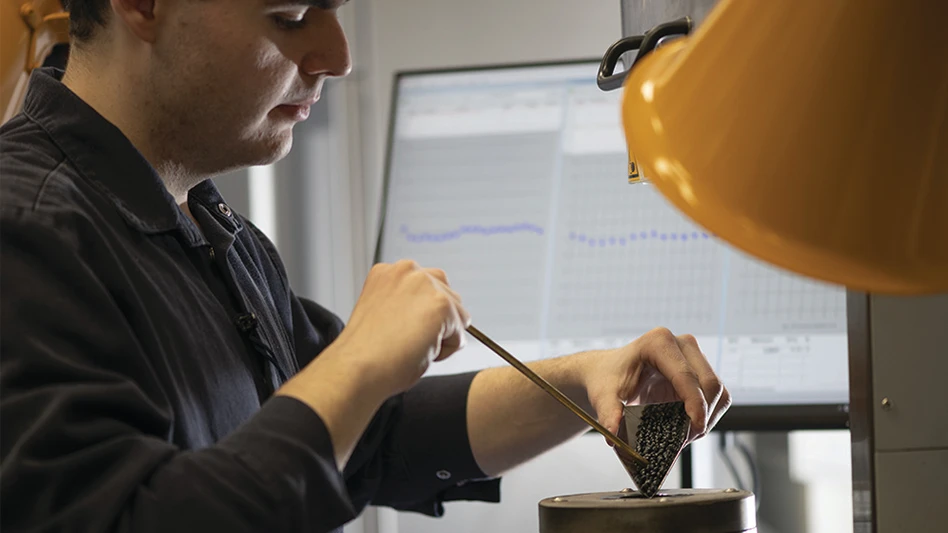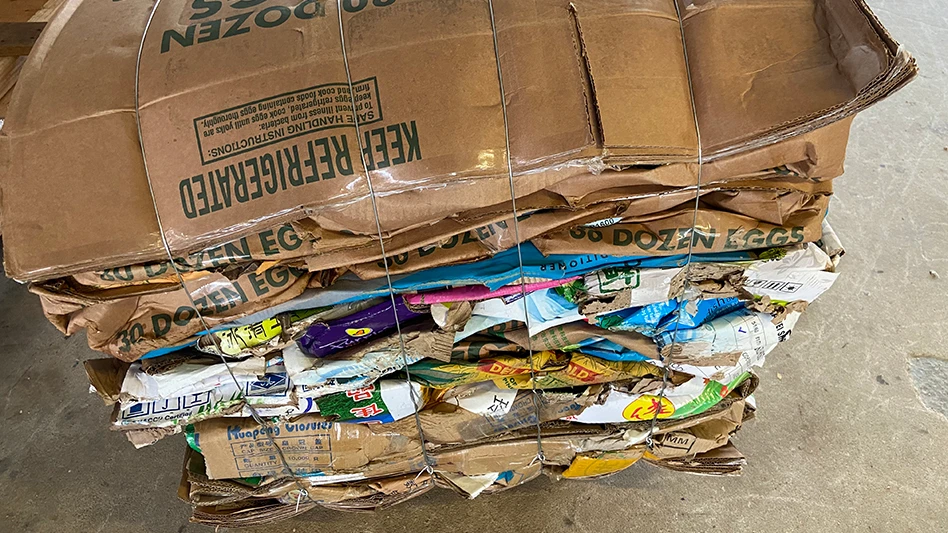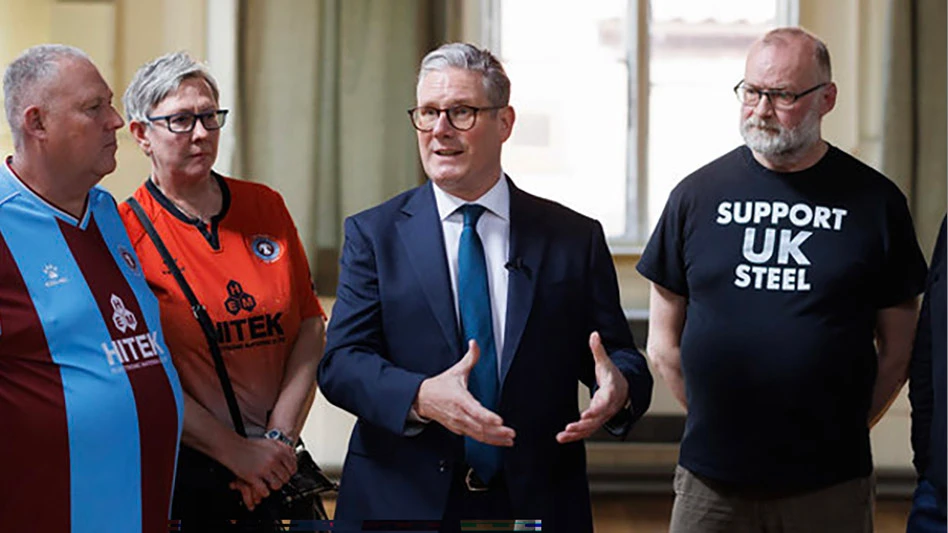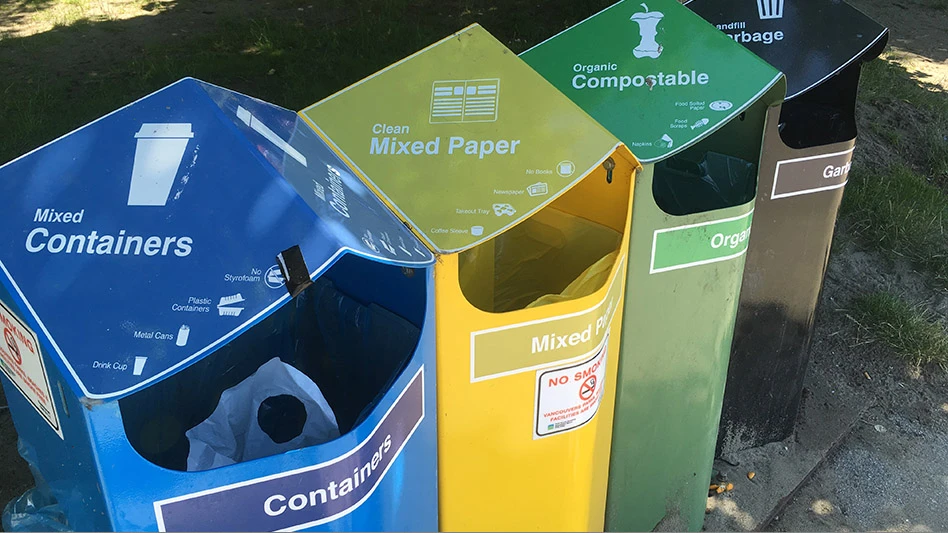
Siegwerk, a provider of printing inks for packaging applications and labels, and plastic packaging recycler APK AG say they have completed deinking trials of twofold printed low-density polyethylene (LDPE) films. The two German firms began the project in October 2019.
“Design for recycling—ideally enabling product-to-product recycling—is crucial to closing the loop for flexible packaging,” says Alina Marm, head of the Circular Economy Hub at Siegwerk. “For Siegwerk this means providing innovative printing inks and lacquers, which facilitate high-quality recycling–for example by allowing easy deinking while keeping full performance during the use phase.”
Printing inks play a key role in the manufacture of plastic packaging, the companies says, adding that they are vital for its appearance and functionality. But they also represent a major challenge when it comes to manufacturing quality recycled plastic.
“The goal of a quality-driven recycling process is to create a recyclate which is as transparent as feasible and which can once more be reused in packaging applications,” says Klaus Wohnig, CEO of APK AG. “Successful deinking is essential.”
This spring, the Research and Development unit of APK AG tested a number of LDPE film samples that had been printed twofold with yellow, red, black and blue inks from Siegwerk. The test series aimed to establish whether APK AG’s solvent-based recycling technology, Newcycling, could fully remove Siegwerk’s inks from the polymer matrix.
The film samples were treated with the Newcycling solvent and dissolved. The obtained polymer solution still contained printing ink components. The dispersed inks were then removed with a filter unit explicitly designed for the process step of deinking, featuring a very high selectivity level.
The deinking tests of the red, black and blue samples produced a “near-virgin” transparency, according to the companies. In the case of the film printed with yellow ink, a marginal yellowness remained after treatment.
“We consider the entire life cycle of the packaging—from design to [the] use phase and finally recycling,” Ralf Leineweber, head of Global Technology Development at Siegwerk, says. “We are very pleased that printing inks from Siegwerk have proven to be suitable for solvent-based recycling processes. We have mastered a much-discussed challenge for efficient recycling of flexible packaging.”
“In line with the principles of the EU Green Deal and the new Circular Economy Action Plan, our Newcycling technology aims at closing cycles for flexible packaging solutions that are deemed ‘un-recyclable’ up to now. We aspire to combine environmental benefits of recycling with high-quality performance of the recyclate,” says Hagen Hanel, head of the Plastics Recycling Innovation Center at APK AG.
Newcycling comprises a physical pretreatment step for plastic scrap, which also is done in the conventional mechanical recycling processes. After this, APK AG adds the solvent-based process step, which purifies the polymer from additives, such as printing inks from Siegwerk. The result is a virgin-like recyclate, according to APK AG. In contrast to chemical recycling, the polymer’s molecular structure stays intact throughout the process. Consequently, the energy that has been invested into polymerization is preserved, according to the company.
Additionally, Newcycling recyclates offer a reduced carbon footprint with 47 percent to 88 percent less emissions compared with virgin plastic types, the company says.
Latest from Recycling Today
- Commentary: How EPR is transforming the packaging industry
- Acerinox names new North American Stainless CEO
- Greenwave closes 2024 books with red ink
- Steel Dynamics nets $217M on record shipments
- Massive Chinese steelmaking rebound recorded in March
- LME looks into sustainable metal pricing
- OnePlanet Solar Recycling closes $7M seed financing round
- AMCS launches AMCS Platform Spring 2025 update





